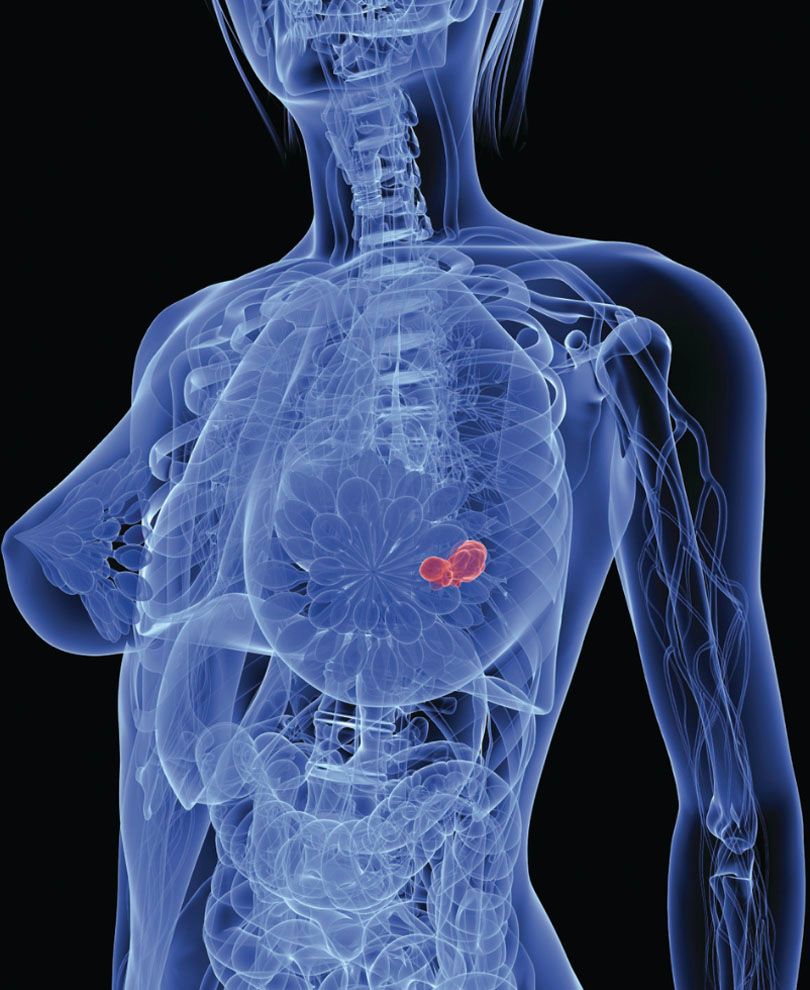Consistent Survival Outcomes With Ribociclib Dose Reductions in HR+/HER2- Advanced Breast Cancer
Patients with hormone receptor–positive, HER2-negative advanced breast cancer who had dose modifications of ribociclib had comparable overall survival outcomes to those given the standard dose.

Dose modifications of ribociclib (Kisqali) compared to the standard dose demonstrated similar overall survival (OS) outcomes in patients with hormone receptor–positive, HER2-negative advanced breast cancer, according to findings from the phase 3 MONALEESA-2 trial (NCT01958021).
Data from the final protocol-specified OS analysis of the study were presented during the 2022 American Society of Clinical Oncology Annual Meeting.1
A landmark analysis showed that the median OS among those who had at least 1 reduction 3 months into treatment was 63.1 months compared with 65.7 months among those with 0 reductions during that time frame (HR, 0.96; 95% CI, 0.68-1.36). Moreover, in a time-varying Cox regression analysis of OS by dose reduction, the median OS was 66.0 months (95% CI, 57.6-75.7) in the modification group and 60.6 months (95% CI, 42.5-79.2) in the standard group (HR, 0.87; 95% CI, 0.65-1.18).
“The ribociclib starting dose is 600 mg per day,” Lowell Hart, MD, FACP, scientific director of clinical research at Florida Cancer Specialists & Research Institute explained in a presentation of the findings. “The MONALEESA-2 [trial] protocol allowed reductions to 400 mg or 200 mg per day to manage treatment related-AEs. Among patients who experienced AEs, [these] reductions may be necessary to help a patient stay on therapy.”
OS outcomes were consistent with prior findings from the MONALEESA-3 (NCT02422615) and MONALEESA-7 trials (NCT02278120), suggesting that deviating from the recommended dose of 600 mg daily on a 3 weeks on/1 week off cycle in combination with endocrine therapy will yield a similar OS benefit. Notably, investigators determined that neither length of treatment nor timing of dose reduction changed these results.
The MONALEESA-2 trial enrolled postmenopausal patients with hormone receptor–positive HER2-negative advanced breast cancer who had received no prior treatment for advanced disease. Enrolled participants were randomized 1:1 to receive either a standard regimen of ribociclib (600 mg) on a on a 3 weeks on/1 week off schedule plus 2.5 mg/day of letrozole continuously or placebo plus letrozole.
Investigators also assessed outcomes based on relative dose intensity 2 (RDI2), which was the time from first dose reduction or interruption to the last dose date. Patients were stratified by the total mg of the dose administered: low (< 64.27%), medium (64.27%-95.86%), and high (> 95.86%).
The median OS was 62.6 months (95% CI, 50.0-80.7) for low RDI2, 63.9 months for medium RDI2 (95% CI, 48.8-not reached [NR]), and 65.3 months for high RDI2 (95% CI; 50.5-NR). In comparing low RDI2 to high RDI2, the hazard ration was 0.99 (0.59-1.42; 95% CI). The hazard ratio between medium and high RDI2 was 0.97 (95% CI, 0.68-1.38).
Investigators used landmark analyses to evaluate the relationship between dose reductions and OS. By separating patients into 2 groups, (“yes” or “no” in regard to dose reduction), the analyses sought to address the potential for guarantee-time bias. In addition, patients whose exposure to the agent surpassed the landmark analyses were excluded from the study. The categories “yes” and “no” indicated whether or not a dose reduction occurred prior to the landmark time.
Among the 334 evaluable patients, 125 did not require a dose reduction (37.4%), 124 patients required 1 reduction (37.1%), 76 required 2 (22.9%), and 9 required more 3 or more (2.7%). Reasons for more than 3 dose reductions included AEs (58.1%), dosing errors (3.3%), lack of efficacy (0.3%), physician decision (3.0%), and patient/guardian decision (3.3%). The reduction reasoning was missing for 3 patients (0.9%).
The median time to first dose reduction was 3 months and baseline characteristics were comparable between patients who required modifications and those who did not. At baseline, the median age was 62.0 years, among both those who did and did not require a reduction. Most patients had an ECOG performance status of 1 (63.6% vs 56.8%).
The median duration of ribociclib exposure was 19.1 months among patients requiring at least 1 modification, compared 10.8 months among patients who did not need a modification.
The median duration of follow-up between randomization to data cutoff was 79.7 months—at which point, the median follow-up time between randomization to date of last contact or death was 49.35 months (range, 1-86.7 months). By the data cutoff date, 209 out of 334 patients (62.6%) required a dose reduction, and 275 patients required a dose interruption (82.3%).
In a safety analysis, neutropenia was the most common all-grade adverse effect (AE) among those who both did and did not require a dose reduction. It was also the AE that contributed elicited dose reductions (42.1%).
Hart concluded the presentation by synthesizing the data from the 3 completed MONALEESA trials.
“Taken together, these data from MONALEESA-2, MONALEESA-3, and MONALEESA-7, suggest that patients treated with ribociclib plus endocrine therapy requiring dose modifications from the recommended starting dose due to AES or other reasons can do so without compromising overall survival,” he said.







